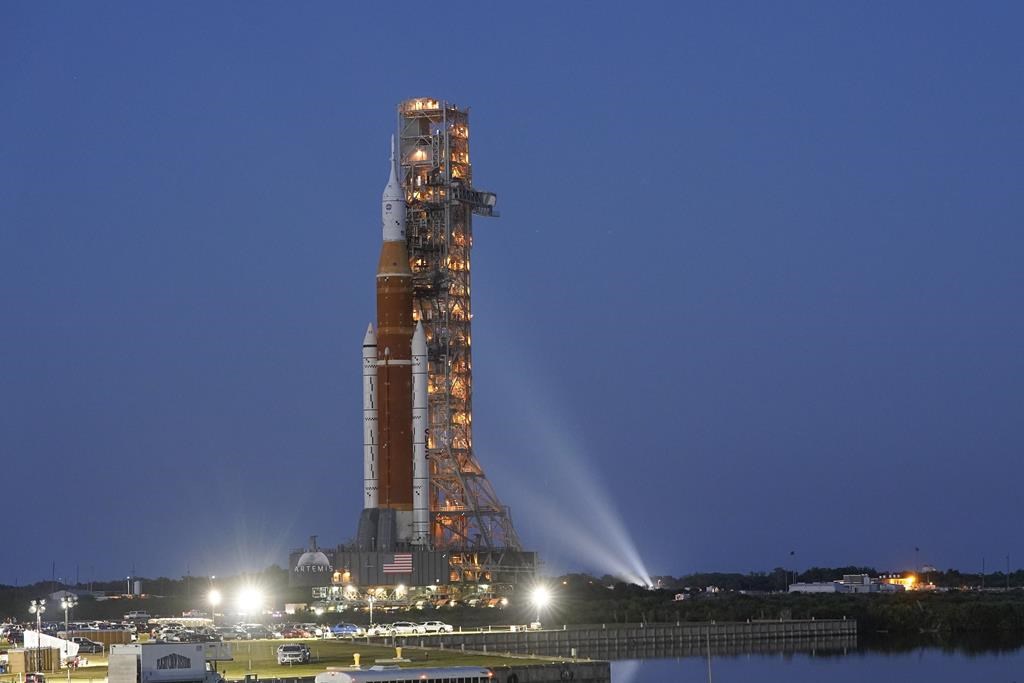Canada’s ‘first-ever’ space health research conference launches at UCalgary

Posted Nov 17, 2022 1:09 pm.
Last Updated Nov 17, 2022 1:25 pm.
The University of Calgary (UCalgary) hosts Canada’s “first-ever” space health research conference on Nov. 17 and 18, where global researchers will gather to help astronauts and Earthlings.
In the conference, findings and ideas from national and international scientists about the effects of spaceflights on human health will be shared, according to organizers.
The panel will include Robert Thirsk, former Canadian astronaut and UCalgary Chancellor Emeritus, Michael Strong, president of Canadian Institutes of Health Research (CIHR), Kris Lehnhardt, NASA element scientist, and Nel Wieman, deputy chief medical officer of First Nations Health Authority.
Opening remarks will also be offered by UCalgary’s president Ed McCauley, and a detailed program of the conference is available online.
“We are on the cusp of a major shift right now in space travel, and in addition to NASA missions, we have commercial flights happening,” said Dr. Steven Boyd, director of the McCaig Institute for bone and joint health and professor at UCalgary.
“The number of people travelling to space is going to dramatically increase over the next few years, and on top of that, they are looking at further-distance destinations like the moon and Mars, so we have got to nail the health of astronauts, so we can understand the implications of these flights on the human body.”
Research findings will help improve understanding of health on Earth
The leader of a Canadian Space Agency-funded project aiming to investigate the neurological effects of spaceflight on astronauts, and event organizer Giuseppe Iaria, says research and ideas to be shared in Calgary may help humans survive on Mars one day, although the findings and knowledge are “invaluable” for life on Earth.
“Very few people go to outer space, so why do we do this? Because it can help people here on Earth, and what we learn on Earth can then help astronauts as well. As an example, learning how to be effective in healthcare delivery in remote and isolated locations on Earth is definitely going to help how we will deliver healthcare while travelling to Mars,” explained Iaria.
“There is so much we can learn on Earth that can be applied to space travel, and the other way around. The symposium brings together people interested in health research for the benefit of people both on Earth and space.”
Boyd says space health research benefits both astronauts and people on Earth.
“We can learn a lot about health on Earth through space research, and I can take a particular example, where I study bone, and with astronauts, things happen over six months in space that would take a decade on Earth,” explained Boyd.
“Space accelerates our understanding of health on Earth.”
Groundbreaking research
The conference will include Boyd’s work on bone loss in astronauts, and Iaria’s research on brain changes following spaceflights.
Meanwhile, Dr. Brent Edwards from UCalgary’s Faculty of Kinesiology and Schulich School of Engineering will share his findings, including “spinal cord injury as a ground-based analog of bone loss in microgravity.”
Also, Dr. Jaideep Bains from UCalgary’s Cumming School of Medicine will share his findings about stress that may be transmitted to others.
Ford Burles from the Department of Psychology will also share his findings about spaceflight-related neuroplastic adaptations, and wayfinding in astronauts.
UCalgary global hub for ‘space health breakthroughs’
This marks Calgary as a global hub for “space health breakthroughs,” as researchers investigate “skeletal effects of microgravity, cardiovascular health in space, effects of spaceflight on the immune system, stress, coping and post-flight experience changes, and brain and sensory mechanisms affected by spaceflight.”
“There is an opportunity to grow our community and space health research in Canada, and the symposium is aiming to do that,” Iaria said.
“Space health research should be for many, not for a few – the major objective of the symposium is to bring the space health research community together, and the University of Calgary is playing a key part of that.”








